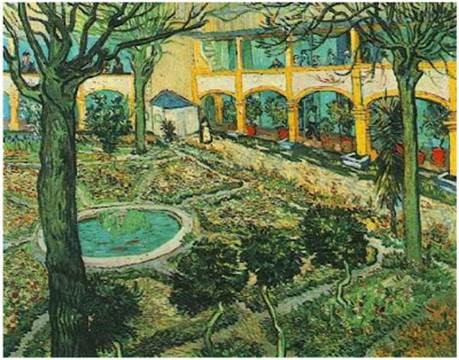|

Departures from Rilke
by Steven Cramer
56 Poems ~ 87 pages
Price: $18.00
Publisher: Arrowsmith Press
ISBN #: 9798987924129
To Order: Arrowsmithpress.com
Reviewed by Michael Escoubas
In the summer of 1929 Franz Xaver Kappus, an aspiring poet, wrote a letter to Ranier Maria Rilke. In it Kappus requested that Rilke apprise his poems. After reading the poems, Rilke responded:
You ask whether your verses are good. You ask me. You have asked others before. You send them to magazines. You compare them with other poems, and you are disturbed when certain editors reject your efforts. … I beg you to give up all that. … There is only one single way. Go into yourself. Search for the reason that bids you write; find out whether or not you would have to die if it were denied you to write.
In Departures from Rilke, Steven Cramer voices a full-throated “yes” to Rilke’s penetrating question. The poems in this collection are simply excellent poems. They do not need extrapolation from me. With that said, the goals of this review are:
One: To show an affinity between Rilke and Cramer, and
Two: Kindle and/or rekindle interest in the original works of Ranier Maria Rilke.
Reviewer’s Note: Italicized material is quoted from Letters to a Young Poet, collected and translated by M. D. Herter Norton © 1934.
Cramer’s sources for Departures are Rilke’s New Poems (1907) and New Poems: The Other Part (1908). After careful study the author, who specializes in the German language, selected which poems to unpack and hang out in open air. I recall my mother retrieving clothing from a vintage cedar chest. She told me she did this to “get the wrinkles out,” to freshen them up a bit. She would even spray a warm, rejuvenating mist on them. The aroma was heavenly, the improvement substantial.
Similarly, I found myself returning to the early twentieth century cedar chest of Rilke’s works. Through the miracle of Google, I flipped back and forth between text and cyberspace enjoying and comparing. This was a fruitful exercise which grew my appreciation for both poets. Few poets would take on Rilke, let alone with as much success as Cramer.
Poetic Tone and Shafts of Light
At first, I found the overall tenor of Departures a little on the depressing side. Titles such as, “On My Death Bed,” “Morgue,” “Going Blind,” “Sickbed,” and “Dancing with Death,” tend to bend a person that way. However, I reminded myself of the poet’s job. As poets, we are committed to tell the truth. Rilke and Cramer are about truth. They provide a safe house in which to consider the darker side of life (yes, the hard-to-accept stuff). This is done in the company of light-shafts which illumine the path. Take “Asylum” as an example:
Ever since the wall that cut their brains in two
came down, they’ve said little, even as the hour
when they make sense comes and goes. Nights,
though, through the open window, the air feels
so suddenly good they caress the concrete sill–
hearts primed with highs they take for prayer,
their eyesight at peace, so when they look out,
the twisting public garden doesn’t scare them;
and mirrored in the storefronts’ windowpanes,
they see the world’s strange symmetries revealed.
Where are the light-shafts? I see them in Cramer’s word pictures: “through the open window, the air feels / so suddenly good they caress the concrete sill– / hearts primed with highs they take for prayer, / their eyesight at peace.”
Rilke’s counterpart is titled, “In the Asylum Garden,” captioned, by … our hearts always exceed us. My online source pairs the poem with Vincent van Gogh’s painting, The Courtyard of the Hospital at Arles, (1889).

The abandoned cloister still encloses the courtyard
as if it were holy.
It remains a retreat from the world
For those who live there now.
Whatever could happen has already happened.
Now they are glad to walk the trusted paths
that draw them apart and bring them back together,
so simple and willing.
Some, on their knees beside the planted beds,
are absorbed by what they are tending.
When no one can see, there is
a secret little gesture they make.
To touch the tender early grass,
shyly to caress it.
The green is friendly and needs protection
from the rose whose red can be too fierce
and can overpower once again
what they know in their hearts to be true.
Still the inner knowledge is always there:
how good the grass is and how soft.
Light-shafts flare throughout Rilke’s lines.
Both poets have a way of looking for and finding good in life. When the tone of life seems bent on pulling us down, poets visit us with light-shafts amid the darkness that would, if not for them, overwhelm us.
Departures from Rilke is a collection of superior poetry which deserves … no, demands a place on my bookshelf.
|


